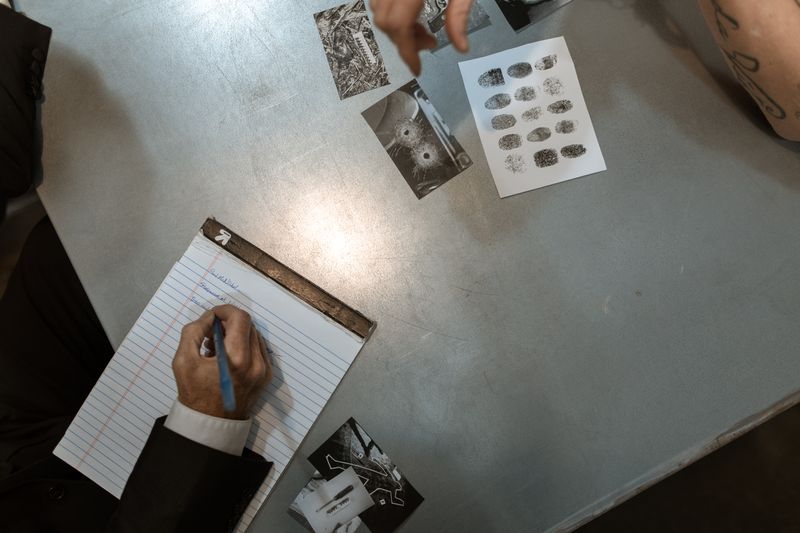Four-Hour Jimmy Savile Documentary Receives Criticism
BBC Faces Criticism for Lengthy Jimmy Savile Drama
The British Broadcasting Corporation (BBC) is at the center of controversy once again, as their recently released four-hour Jimmy Savile documentary comes under fire. The program, which delves into the life and alleged crimes of the late television presenter, has been called “ridiculous” by Piers Pottinger, a prominent commentator and critic. Pottinger’s scathing remarks about the documentary speak to a broader concern about the priorities and journalistic approach of the BBC, igniting a heated debate about the role of media organizations in examining sensitive topics.
The Backlash: “BBC have lost the plot!”
Piers Pottinger, a well-known figure in media and public relations, did not mince his words when he criticized the BBC for the scale and length of the Jimmy Savile documentary. In a recent interview, Pottinger accused the BBC of “losing the plot” by dedicating four hours of airtime to a single subject. Pottinger further argued that such a lengthy investigation was excessive and that the BBC had failed to strike a reasonable balance between informing the public and sensationalism.
Pottinger’s words have struck a chord with many who question the BBC‘s editorial decisions in light of other pressing issues. While some argue that it is necessary to thoroughly examine Savile‘s alleged crimes and the institutional failure that allowed him to operate for so long, others believe the attention given to this scandal is disproportionate when compared to current affairs that directly impact society at large.
Lost in Translation: The Challenge of Tackling Sensitive Topics
The BBC‘s documentary on Jimmy Savile is part of a wider trend in journalism, where media organizations grapple with the ethical and moral dilemma of covering sensitive topics. The challenge lies in preserving journalistic integrity while also considering the potential harm that such investigations may cause to victims and their families.
In the case of the Jimmy Savile documentary, the BBC‘s decision to dedicate four hours to the subject raises questions about the broadcaster’s priorities. Is it more important to delve into a historical scandal with limited immediate impact, or to focus on issues that are currently affecting society? Critics like Piers Pottinger argue that the BBC has, in this instance, misplaced its journalistic integrity by prioritizing entertainment value over public service.
Editorial: Navigating Sensitivity and Public Interest
A Delicate Balance
The BBC‘s four-hour Jimmy Savile documentary raises important questions about the fine line media organizations must tread when covering sensitive subjects. While it is crucial to hold institutions and individuals accountable for their actions, it is equally vital to consider the potential consequences and sensitivity surrounding such reporting.
As the Jimmy Savile scandal continues to cast a long shadow over the BBC, it is crucial for the broadcaster and other media organizations to strike a delicate balance. Investigative journalism can serve as a vital tool for exposing wrongdoing, but it must be done responsibly, with sensitivity towards victims and their families.
The Changing Landscape of Journalism
The criticism directed towards the BBC reveals a broader concern about the evolving landscape of journalism. In an age of 24-hour news cycles, social media frenzies, and instant gratification, media organizations face increasing pressure to captivate audiences with sensational stories. However, it is important to resist the temptation to sacrifice journalistic integrity for the sake of higher viewership or ratings.
Advice for Media Organizations
Reflecting on Priorities
Media organizations should pause and reflect on their priorities, remembering that their primary role is to inform the public and hold power accountable. While it is essential to cover historical scandals and investigate issues that have long-term ramifications, a measured approach should be adopted, ensuring that the coverage remains fair, balanced, and proportionate to other important matters unfolding in the world.
Supporting Victims and Promoting Change
Media organizations must also recognize the duty they have to support victims and foster change within society. Sensitivity and compassion should inform coverage of sensitive topics, particularly those involving violations of trust and the vulnerable. By elevating the voices of survivors, media organizations can play an active role in driving social change and ensuring justice is served.
In conclusion, the controversy surrounding the BBC‘s four-hour Jimmy Savile documentary highlights the ongoing struggle that media organizations face in addressing sensitive topics. Striking a balance between informative journalism and responsible reporting is essential in safeguarding the integrity and impact of the media while respecting the dignity of those affected. The criticism directed towards the BBC should serve as a reminder to all media organizations to reflect on their own practices and make choices that prioritize public interest and ethical reporting.

<< photo by RDNE Stock project >>
The image is for illustrative purposes only and does not depict the actual situation.
You might want to read !
- Hounslow’s Wellbeing Initiative: Illuminating World Mental Health Concerns
- Hounslow’s Wellbeing Initiative: Illuminating Mental Health for World Awareness
- Hounslow: Illuminating the Path to Mental Wellbeing on World Mental Health Day
- Strictly Come Dancing’s Nikita Kanda Opens Up About Pre-Elimination Injury
- “Dancing through Tears: Nikita Kanda Reflects on the Emotional Journey of Leaving Strictly”
- Reflecting on the Journey: Nikita Kanda Opens Up About Leaving Strictly
- Wrestling world mourns the flamboyant legend, Adrian Street, at 82
- “Jeremy Vine’s Advocacy for Victims: Standing Strong Against Stalker Alex”
- Jeremy Vine Teams Up with TV Host to Support Abuse Victims
- “Diving into the Lyrical Realm: Uncovering the Mastery of Filmmaker Terence Davies”
- Secret Connection: Moira Unearths the Truth Behind Cain and Caleb’s Mystery
- Cathy Ferguson: A Life of Love and Legacy with Sir Alex




